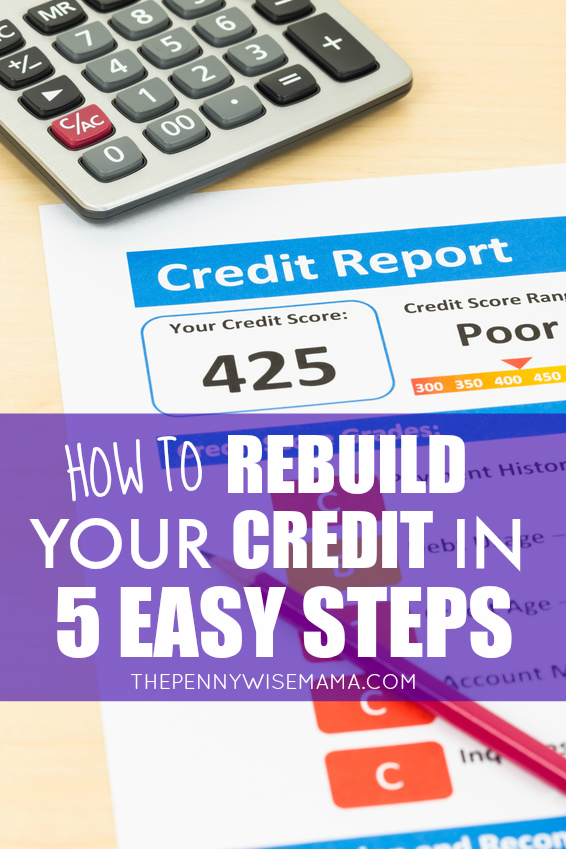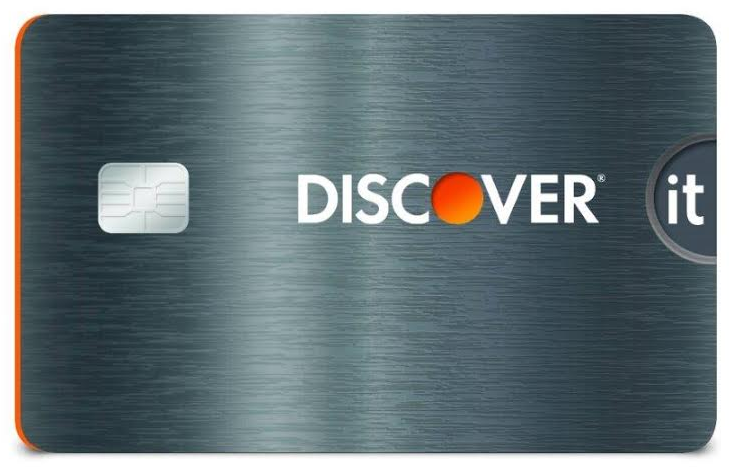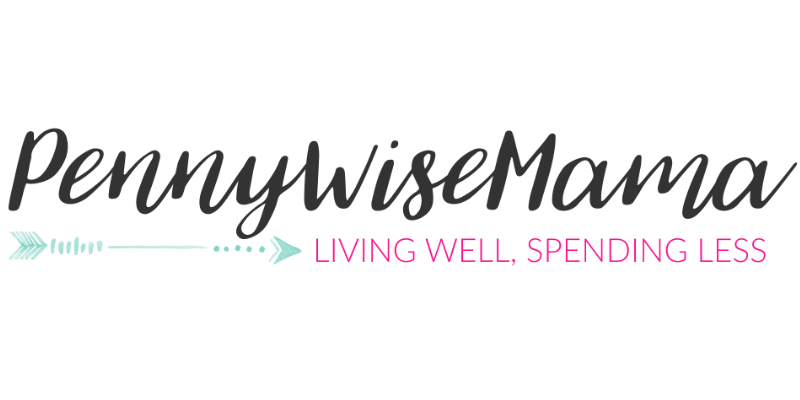Let’s face it. At some point in our lives, we have all made bad financial decisions. From something as simple as overspending at the grocery store, to something much worse, like going into foreclosure or having a car repossessed, these decisions come with consequences. Some are minor, while others have long-lasting effects. Whatever the case may be in your situation, the important thing is that you have learned from your mistakes and have made a conscious effort to make better financial decisions in the future.

How to Rebuild Your Credit in 5 Easy Steps
The good news is if your credit is in bad shape, due to a few (or many) financial mistakes, there are things you can do to improve it. It definitely won’t be an easy (or fast) road, but rebuilding your credit will pay off in the future. To help you get started on the right foot, follow these five easy steps:
1. Check Your Credit
If you haven’t already, make sure you check your credit score (Equifax, Experian and TransUnion each offer one free report each year). This will not only help you make a plan moving forward, it will also make you aware of any mistakes or fraudulent charges in your credit history. If anything is inaccurate, dispute it and make sure the problem gets fixed. Keep in mind, any score at or below 619 is considered poor, and anything between 620 and 679 is considered average. Your goal is to get your score above 700!
If you are a Discover cardmember, you can check your FICO® Credit Score for free on monthly statements and online. They even provide some reasons on why it may have gone up or down over the last month!
2. Set Up Payment Plans to Pay Off Overdue Bills
If you’ve fallen behind on credit card payments, medical bills, etc., it can negatively affect your credit score. In fact, your payment history has the biggest effect on your credit score, so if you have too many late payments, that will bring your score down. Your credit report will show any negative information, along with phone numbers to make payment arrangements. Many companies will allow you to set up payment plans based on what you can afford. The important thing is to pay off each account as quickly as possible. Each time a negative account falls off your credit, your credit score will improve.
3. Pay Your Bills on Time
Moving forward, it’s important that you pay your bills on time. I recommend setting up auto payments or bill pay through your bank to avoid missing payments. If that doesn’t work for you, make sure you write the due dates for each bill on a calendar or schedule a reminder on your phone so that you don’t forget. You could even make it a habit of sending out all of your bills on the 1st of the month (or whichever day works with your payment dates) to avoid forgetting to pay a bill later in the month. Discover also has no late fee on your first late payment.
4. Create a Budget and Pay Down Debt
As hard as it may be, you need to create a budget that limits your spending. Make it a priority to only buy what you need and then take whatever you have left over to pay down your debt. Depending on how aggressive you get, you could have your debt paid off much faster than you think.
5. Use a Secured Credit Card
It may seem counter-effective to use a credit card to help rebuild your credit, but actually the opposite is true. A credit card is one of the best ways to build up your credit because it establishes a payment history. When your credit is poor, a secured credit card can help you build up your credit until you qualify for a regular credit card. Keep in mind — just like any credit card, it’s important that you pay your bill on time and don’t spend more than you can afford to pay back.

If you’re interested in getting a secured credit card, Discover recently launched the Discover it® Secured Credit Card for people looking to build or rebuild their credit. The card comes with the same rewards and benefits as the Discover it® Card, including Cashback Bonus® rewards and your FICO® Credit Scores for free on monthly statements and online, all with no annual fee.
Benefits of the Discover it Secured Card
The Discover it Secured Credit Card requires applicants to provide a security deposit, which Discover holds as collateral. After one year as a cardmember, Discover will begin to review Secured Credit Card accounts each month to see if cardmembers can transition to an account that does not require a security deposit. These reviews are based on responsible credit management across all of the consumers’ credit cards and loans.
The Discover it Secured Credit Card features 2% Cashback Bonus at gas stations and restaurants on up to $1,000 in combined purchases each quarter, plus 1% Cashback Bonus on all other purchases. In addition, new cardmembers can double all the cash back they earn at the end of their first year as a cardmember.
Additional Discover it Secured Credit Card Benefits:
- No late fee on first late payment and no increase to APR for late payment
- Reporting to all three major credit bureaus
- $0 Fraud Liability Guarantee means cardmembers are never responsible for unauthorized purchases on their Discover card
- Freeze It℠ – an on/off switch that cardmembers can access on the Discover mobile app or website to prevent new purchases, cash advances and balance transfers if they misplace their card
- Award-winning 100% U.S.-based customer service available day or night
Click here find out more on how using a Secured Credit Card can help build your credit.
What are some of your tips for establishing or rebuilding good credit?
I wrote this post as part of the Discover Preferred Blogger Program. All opinions are my own.



